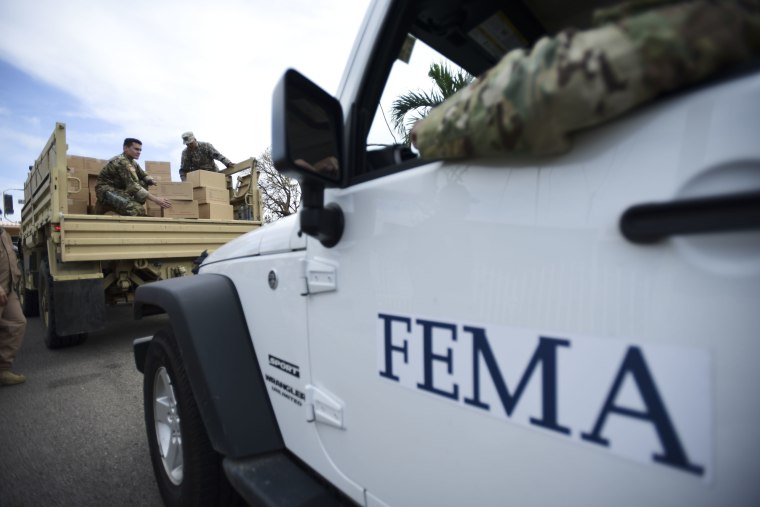Over the weekend, tornadoes that cut through eastern Alabama, and the consequences were heartbreaking. At last count, at least 23 people were killed, including multiple young children.
Donald Trump acknowledged the devastation with a decidedly Trump-like tweet.
"FEMA has been told directly by me to give the A Plus treatment to the Great State of Alabama and the wonderful people who have been so devastated by the Tornadoes. [Alabama Gov. Kay Ivey], one of the best in our Country, has been so informed. She is working closely with FEMA (and me!)."
It's possible, of course, that Trump didn't actually reach out to FEMA in order to deliver a presidential directive to the agency, stressing the importance of giving Alabama "the A Plus treatment." He does, after all, routinely describe conversations that only exist in his imagination.
What's more, there can be no doubt that the communities devastated by the weekend's tornadoes deserve FEMA's immediate assistance. No one has suggested otherwise.
It's also worth emphasizing that there's no evidence to suggest FEMA officials will treat victims in Alabama any differently than they would assist other Americans in need of relief.
But Trump's missive seemed to suggest that, in his mind, it's sensible to direct FEMA to give some Americans the VIP treatment, but not all. As a Washington Post report explained:
Trump's enthusiastic assurance that Alabama would get top-flight help contrasts sharply with his barbed rhetoric following horrific wildfires in California and Hurricane Maria in Puerto Rico, when he repeatedly threatened to cut off federal aid and picked fights with local politicians, in one instance calling the mayor of San Juan "totally incompetent."The difference between Alabama and Puerto Rico and California, the president's critics say, is obvious.
Rafael Lemaitre, who was FEMA's director of public affairs during the Obama administration, added, "The president has politicized recovery efforts in a way we've never seen before. FEMA needs to be as much of an apolitical agency as possible. It shouldn't matter whether you live in a red state or a blue state."
Six weeks ago, Donald Trump published a very different kind of tweet, which complained about California's approach to forest management -- an issue he only pretends to understand -- and wrote that he'd ordered FEMA to send the Golden State "no more money."
As it turns out, that order never actually happened, and the president's bluster was hollow. But he also never made any effort to direct FEMA to give California "the A Plus treatment."
And then, of course, there's Puerto Rico. Did you catch this report two weeks ago?
Puerto Rico's governor said President Donald Trump is refusing to meet privately with him to discuss the pace of disaster relief 17 months after Hurricane Maria devastated the U.S. territory.Gov. Ricardo Rossello told reporters at a round table on Friday that the White House declined public and private requests to meet ahead of the governors' conference taking place in the nation's capital this weekend. Rossello said Trump bears responsibility for the slow pace of disaster relief.
When it comes to this president, we've all heard plenty of "flattery will get you everywhere" jokes. But when it comes to disaster relief, we shouldn't even have to wonder about Trump and political considerations.
Helaine Olen concluded yesterday, "A president is supposed to represent all of us, especially when disaster strikes. But that's not how Trump views politics. Instead, he sees it as a system of rewards and punishments in a way that would not be unfamiliar to an organized crime chief. This is a profound failure of both morals and governance."
